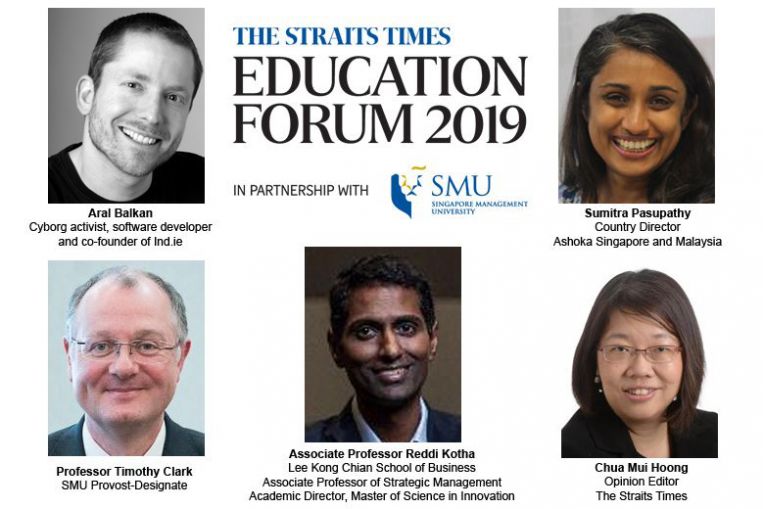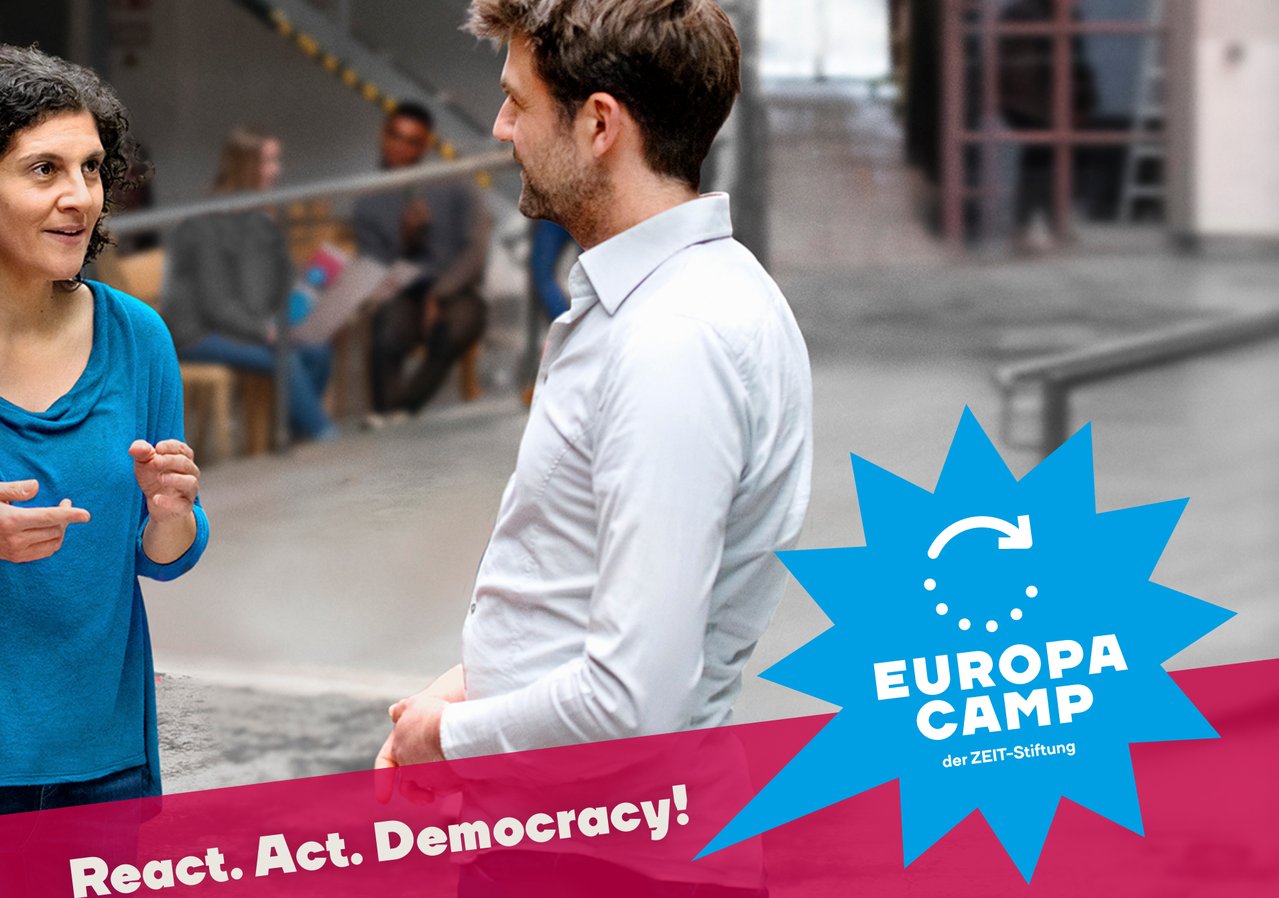Upcoming talks: April
In April, I will be speaking at two events, starting with The Straits Times Education Forum debate on entrepreneurship to be held at Singapore Management University on April 6th, 2019.
ST Education Forum

Some of the participants at this year’s ST Education Forum.
The Straits Times (ST) is Singapore’s most popular paper. I remember reading its Malaysian counterpart1 as a kid in Kuala Lumpur and eagerly awaiting its tech supplement every Thursday to find out – among other things – exactly how many floppy disks the next version of King’s Quest would require.
At this year’s ST Education Forum, I will be joined by Sumitra Pasupathy, country director of Ashoka Singapore and Malaysia, to argue for the motion that “Entrepreneurs today do more harm than good.” We will be debating Professor Timothy Clark, SMU’s new Provost and Associate Professor Reddi Kotha, Academic Director of Master of Science in Innovation at SMU, who will be arguing against the motion. The debate will be chaired by Chua Mui Hoong, Opinion Editor at ST.
ST recently ran two articles on the event2. Here’s some background on what I will be presenting:
The Silicon Valley model of entrepreneurship is often celebrated.
However, Mr Aral Balkan takes issue with the business model underpinning tech-based start-ups, termed “surveillance capitalism”, in which technology companies monetise the data captured through monitoring their users' online behaviour.
The co-founder of Indie, a social enterprise striving for social justice in the digital age, says that supporting sustainable businesses is in the common interest - arguing that the world needs “stay-ups”, instead of Silicon Valley’s disposable and surveillance-based “start-ups”. He also maintains that the antidote to surveillance-based Big Tech is “Small Tech” made by humans for humans.
EuropaCamp: React. Act. Democracy!

EuropaCamp: React. Act. Democracy! in Hamburg.
On April 26th, I will be speaking on Small Technology and the peer web at EuropaCamp, organised by ZEIT-Stiftung.
This will be the first time I’ve been back in Hamburg since I was there for some constructive disobedience with Diem25 during the G20 in 2017 and it follows my Bucerius Lab Lecture on Digital Emancipation that I gave at the same venue in 2016.
My talk is titled Small Technology: the antidote to surveillance capitalism for protecting human rights and democracy in Europe and beyond and here’s the description:
Big Tech, with its billion-dollar unicorns, has robbed us of the potential of the Internet. Fueled by the extreme shortsightedness and greed of venture capital and startups, the utopic vision of a decentralised and democratic commons has morphed into the dystopic autocracy of Silicon Valley panopticons that we call surveillance capitalism. This status quo violates our human rights, threatens our democracies, and casts doubt on the integrity of personhood itself.
Aral Balkan is a designer and programmer who has been making things with computers for the past 35 years. He’s spent the last five of those working on the problem of technologically regulating the abuses of surveillance capitalism as well as designing freedom-respecting alternatives to it. In this talk, he presents his latest thinking on how we can create alternatives to surveillance capitalism that cannot be co-opted. His suggestion is simple:
Think small.
Here’s to hopefully seeing some of you in person this month.
-
The New Straits Times. ↩︎
-
The second one includes a video of some of the local participants and students talking about the issue, which I’d highly recommend you watch if you have a few minutes. It’s awesome to see the next generation aware of and caring about the issues. ↩︎